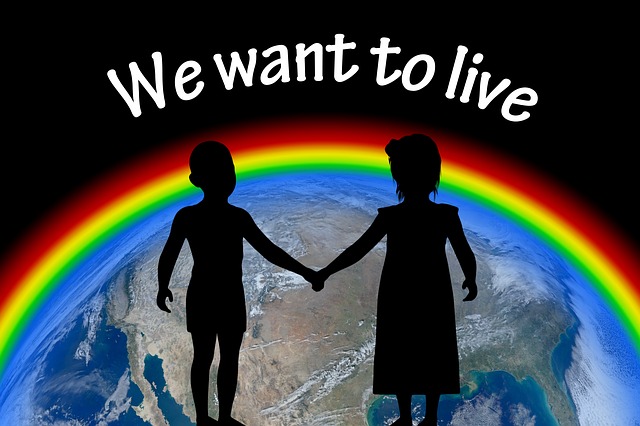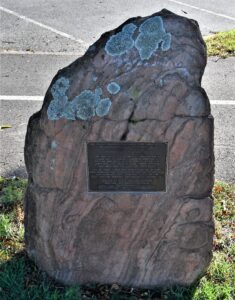Coronavirus News
Coronavirus Who’s the Canadian leading WHO’s coronavirus investigation in China?
A renowned Canadian doctor and emergencies specialist is leading a team of international experts investigating the coronavirus outbreak on the ground in China.Aylward has close to three decades of experience with WHO in international infectious disease outbreaks. (Pierre Albouy/Reuters)A renowned Canadian doctor and top emergencies official is leading an international team of experts for the World Health…

Coronavirus
A renowned Canadian doctor and emergencies specialist is leading a team of international experts investigating the coronavirus outbreak on the ground in China.

A renowned Canadian doctor and top emergencies official is leading an international team of experts for the World Health Organization investigating the coronavirus outbreak on the ground in China.
The front-line team was formed after WHO Director-General Tedros Adhanom Ghebreyesus secured an agreement with Chinese President Xi Jinping in late January allowing them entry into the country to conduct the investigation.
“A lot of people are asking, ‘Where is the outbreak going? Is it getting better? Is it getting worse?'” Ghebreyesus said at a media briefing Monday.
“An advanced team of WHO experts has just arrived in China, led by Dr. Bruce Aylward, to lay the groundwork for the larger international team.”
I’ve just been at the airport seeing off members of an advance team for the @WHO-led #2019nCoV international expert mission to #China, led by Dr Bruce Aylward, veteran of past public health emergencies.
Tedros said Aylward will be working with between 10 and 15 colleagues, who have yet to be named, and their Chinese counterparts to get the “right expertise on the team to answer the right questions” about the outbreak.
Limited information has been provided publicly about the team’s mission or where specifically it will be operating — and it has taken them two weeks to get into China at a critical time during the outbreak.
Coronavirus Why Aylward is leading investigation
A native of St. John’s, N.L., Aylward joined WHO in 1992 after completing his medical training at Memorial University, the London School of Hygiene & Tropical Medicine and the Johns Hopkins School of Public Health.
CBC News was unable to reach Aylward for an interview, but a spokesperson for WHO said they would provide more information about the mission as it becomes available.
“Bruce has always been adventuresome. He chose a career that was cutting edge in terms of world health,” said Dr. Ian Bowmer, the president of the Royal College of Physicians and Surgeons of Canada and a former Memorial University professor who Aylward credited for his interest in infectious diseases.
“I think he’s incredibly well positioned to take the lead for the World Health Organization.”
Aylward is highly experienced in infectious disease control, having led WHO’s response to the Ebola outbreak in West Africa and mass immunization programs throughout Asia, and has been instrumental in the ongoing efforts to eradicate polio worldwide.
In 1998, he headed up WHO’s collaboration with the Global Polio Eradication Initiative, a public-private partnership with the U.S. Centers for Disease Control and Prevention (CDC), the United Nations Children’s Fund (UNICEF) and the Bill & Melinda Gates Foundation.
“He was essentially the person who led the initiative related to the eradication of polio for WHO,” said former Ontario Chief Medical of Health Dr. Arlene King. “He’s very familiar with the landscape in China and some of the sensitivities that he will need to navigate in order to be … successful there.”
Coronavirus Challenges in China
With more than 50 million people in quarantine near the epicentre of the outbreak in the central Chinese province of Hubei, Aylward is entering a “complex and difficult situation” but he is a “trusted voice,” said senior WHO adviser Dr. Chris Maher.
“China has really pulled out all the stops in trying to respond to [the outbreak], so it’s not an easy situation to be operating in,” Maher said. “But I think this is right up Bruce’s alley, it’s the sort of thing that he enjoys and does well, so he’s a good choice to go in.”
From 2014 to 2016, Aylward helped develop WHO’s Health Emergencies Programme and directed more than 2,000 people in WHO’s on-the-ground response to the Ebola outbreak in West Africa.
Aylward also led WHO’s response to the Zika virus outbreak in Latin America and Caribbean nations in 2016, declaring a global public health emergency and investigating the link between the virus and microcephaly.

“He has had to deal with governments at the highest levels in all regions of the world, and all of those experiences have to be very important for him in China,” said former U.S. ambassador John Lange, the UN Foundation Senior Fellow for Global Health Diplomacy.
“It’s hard to imagine that there are many people in the world with such varied experiences directly relevant to the kind of work that he’s doing.”
Coronavirus Controversy over WHO’s handling of Ebola
Aylward’s career is not without criticism, however. He faced backlash for WHO’s handling of the effort to fight the Ebola epidemic in 2014.
An investigation by the Associated Press in 2015 found a string of avoidable errors badly undermined the work of international aid workers, including a lack of resources, expired supplies and a delay in declaring an international emergency.
Aylward, who was then WHO’s top Ebola official, said it was common for Ebola treatment centres to be caught up in political wrangling.

“Undoubtedly in some cases there was bureaucracy,” he said at the time, adding it was wrong to lay the blame at WHO’s door. “These were government decisions at the end of the day.”
But a quicker and more effective response to the epidemic from WHO would have resulted in far fewer deaths, said Dr. Irwin Redlener, director of the National Center for Disaster Preparedness at Columbia University in New York, at the time.
“I personally would have no confidence that the same team at WHO would be able to handle the next international outbreak,” Redlener told the Associated Press.
“We’ve already seen what the old leadership at WHO has been able to do, so I don’t know why we would expect them to be able to right themselves.”

Subscribe to the newsletter news
We hate SPAM and promise to keep your email address safe







